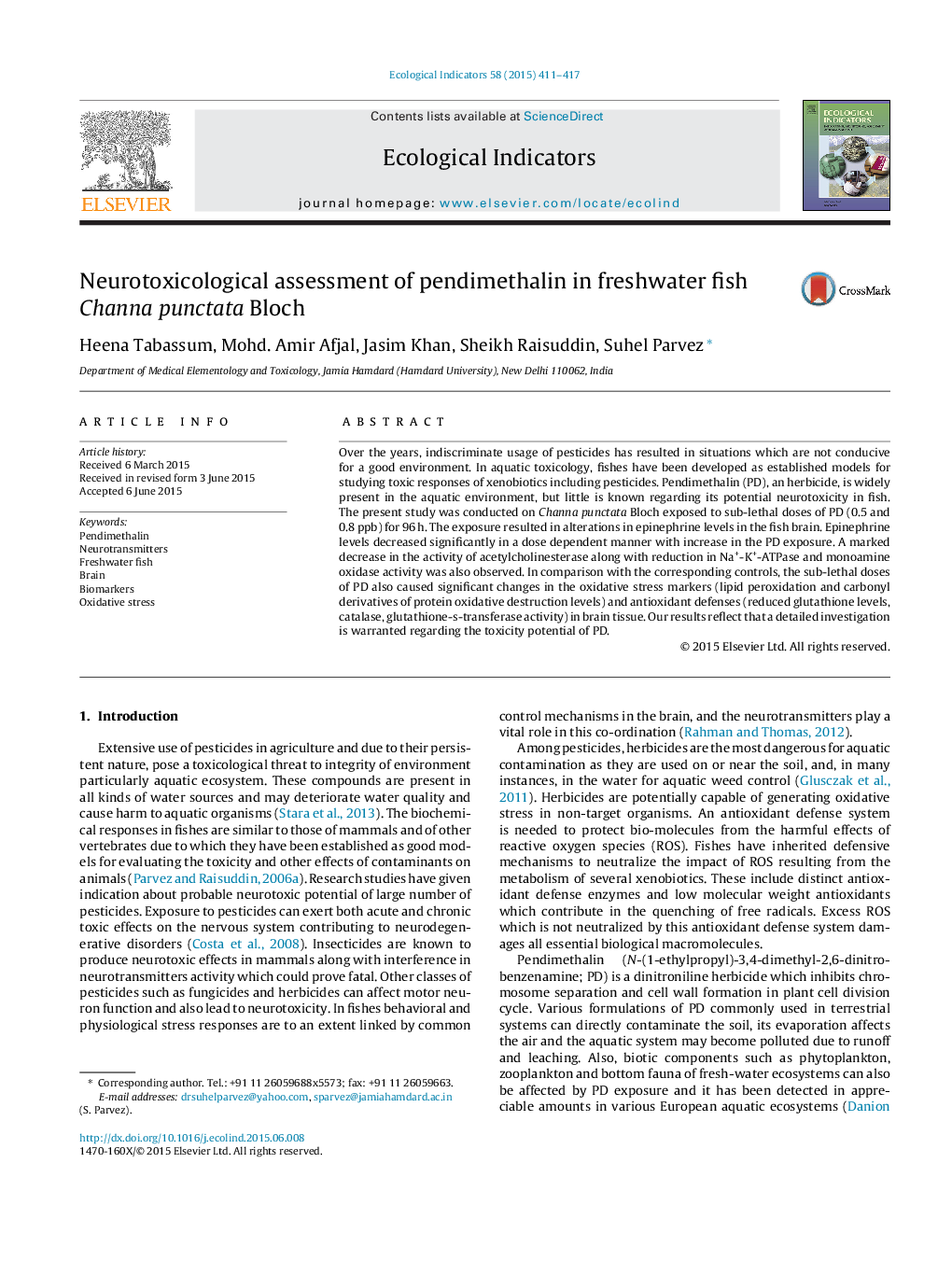| Article ID | Journal | Published Year | Pages | File Type |
|---|---|---|---|---|
| 6294302 | Ecological Indicators | 2015 | 7 Pages |
Abstract
Over the years, indiscriminate usage of pesticides has resulted in situations which are not conducive for a good environment. In aquatic toxicology, fishes have been developed as established models for studying toxic responses of xenobiotics including pesticides. Pendimethalin (PD), an herbicide, is widely present in the aquatic environment, but little is known regarding its potential neurotoxicity in fish. The present study was conducted on Channa punctata Bloch exposed to sub-lethal doses of PD (0.5 and 0.8Â ppb) for 96Â h. The exposure resulted in alterations in epinephrine levels in the fish brain. Epinephrine levels decreased significantly in a dose dependent manner with increase in the PD exposure. A marked decrease in the activity of acetylcholinesterase along with reduction in Na+-K+-ATPase and monoamine oxidase activity was also observed. In comparison with the corresponding controls, the sub-lethal doses of PD also caused significant changes in the oxidative stress markers (lipid peroxidation and carbonyl derivatives of protein oxidative destruction levels) and antioxidant defenses (reduced glutathione levels, catalase, glutathione-s-transferase activity) in brain tissue. Our results reflect that a detailed investigation is warranted regarding the toxicity potential of PD.
Related Topics
Life Sciences
Agricultural and Biological Sciences
Ecology, Evolution, Behavior and Systematics
Authors
Heena Tabassum, Mohd. Amir Afjal, Jasim Khan, Sheikh Raisuddin, Suhel Parvez,
